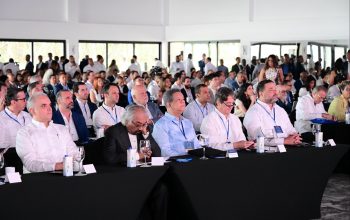news
Meet Hilary Lohmann, GFDD/FUNGLODE Fellow Researching Resource Dependency for Coastal Communities to Climate Change Adaptation
July 23, 2014
The Fellows Program, an initiative of GFDD and FUNGLODE, is pleased to introduce our most recent fellowship scholar, Hilary Lohmann, Master’s candidate in Marine Affairs at the University of Rhode Island (URI). Hilary’s research measures the vulnerability of coastal community members to
changes associated with variations in climate. This field work will be conducted during a 6 week period in June and July (2014) in the Dominican communities of Boca Chica, La Caleta, Samaná and Montecristi.
About Hilary
Hilary Lohmann holds a Bachelor of Arts in Animal Behavior and Spanish from Bucknell University and is currently a candidate for a Masters of Marine Affairs at URI. In addition to her studies, Hilary has spent much time
abroad, and her experiences around the world include volunteering in Zambia, teaching in Vietnam, and various internships in Marine Science in Belize.
About the Research
Hilary’s research analyzes the capacity of natural resource-dependent communities to adapt to unavoidable climate impacts, a topic which requires immediate attention because global changes in climate patterns are already altering the accessibility, quality, and
availability of natural resources. Social, economic, and environmental characteristics determine the capacity to cope with and adapt to changes in climate.
Her study uses a survey method to assess resource dependency and adaptive capacity at the individual and household levels in the communities. It focuses on both direct marine resource users/dependents (e.g. fishers, tourism and transport operators) and indirect community dependents (e.g. non-marine business owners and
operators), and considers each group’s vulnerability to climate change.

The Marshall and Marshall survey method that Lohmann is employing has been used in the past to assess the vulnerability of direct resource users only, and has not been conducted in the Caribbean. Therefore, this adapted study is novel both in location and population of interest.
The survey provides a list of statements and the participant indicates his or her level of agreement or disagreement with each one. Statements measure an individual’s attachment to his or her occupation and community, perception of job security and changes in climate and resource availability. The results will be analyzed to determine the vulnerability community members (direct and indirect marine resource users) to changes associated with variations in climate.
Hilary will realize her fellowship under the guidance of in-country expert, Ruben Torres, Director of Reef Check in the Dominican Republic.
About the Fellows Program
The Fellows Program, an extension of the internship and academic exchange program InteRDom, was developed in 2009 to respond to the desire of GFDD and FUNGLODE to develop a community
of scholars that contributes to the Foundations’ growing body of research on matters of international concern that directly impact the Dominican Republic, complementing the overall mission of GFDD and FUNGLODE to promote academic exchange, generate scholarship, and influence the creation of public policy related to economic and social development both at the national and international level.
Through The Fellows Program, GFDD and FUNGLODE seek to generate
scholarship on issues at the forefront of the United Nations’ agenda in order to give voice to national and regional concerns and offer viable solutions to domestic and international challenges.
The Fellows Program provides opportunities for M.S., M.A. and Ph.D. candidates interested in conducting high-level research in the Dominican Republic on issues related to sustainable development. The final output of the investigation is a comprehensive report which
includes empirical data. Fellows realize research in coordination with GFDD and FUNGLODE staff, National Advisor and their university professors. Fellows that carry-out exemplary work have the opportunity to present their findings before the United Nations community on behalf of GFDD and FUNGLODE.






